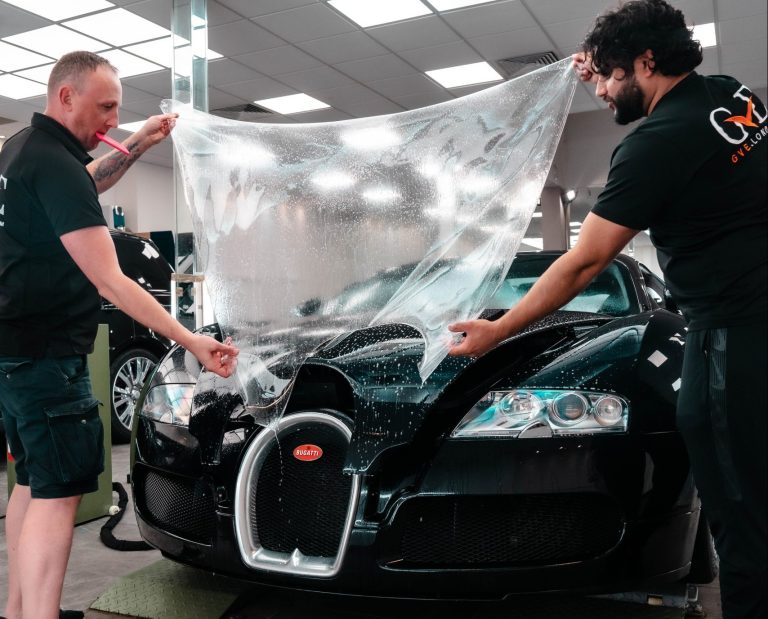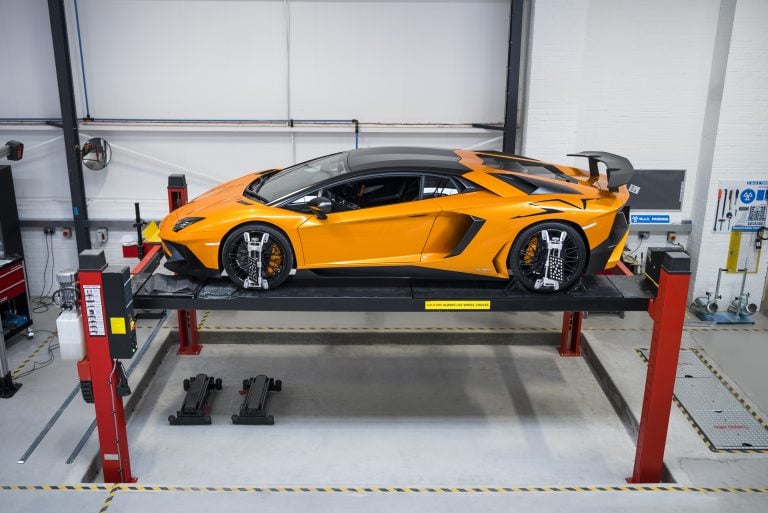- Servicing Case Studies
Choosing the Right Motor and Transmission Oils for Your Supercar | GVE London – Blog
Choose the best motor and transmission oils for your supercar to ensure peak performance, longevity, and protection under extreme conditions with expert tips.
Supercars form the kind of vehicles that are designed for speed, performance, and luxury. The transmissions and engines function under extreme conditions that need top-grade oil, ensuring better longevity and performance of the vehicle. Selecting the appropriate kind of motor and transmission oils is the key to safeguarding your exotic investment and maintaining its better performance. In our post today, we are going to steer you through the varied forms of oil and the factors of consideration while opting for the best ones for your supercar.
Understanding the Role of Motor Oil
Motor oil is the lifeblood of your supercar engine. It lubricates the engine components, reduces friction, and helps cool the engine itself. High-performance engines are prone to generating a lot of heat; thus, the oil should hold its viscosity in extreme conditions. The wrong oil will increase wear, cause overheating, and even help your engine fail. The factors to consider when choosing supercar motor oil include:
- Viscosity: It is the measure of the thickness of oil at different temperatures that will determine the flow characteristics and protection of your engine. According to your supercar’s manual, you are supposed to use a specific viscosity grade.
- Synthetic vs. Conventional: Synthetic oils offer much better protection, especially for high-performance engines. They are designed to withstand extreme temperatures and retain properties far longer than those of conventional oils.
- Additives: Emphasise oils that contain detergents to neutralise acids, anti-wear agents to prevent wear and tear, and corrosion inhibitors for greater protection of the engine and its smooth running.

Read Also: What Happens If You Overfill Your Engine Oil?
The Importance of Transmission Oil
Transmissions require a lubricant, as oil is sometimes called, that is nearly as crucial to your supercar as motor oil used by a supercar service centre like GVE London. It lubricates the transmission system, making sure it shifts transparently and minimises friction between moving parts of the gear. If a well-lubricated transmission shifts right from all its gears, then it will cause no wear on the gears or other moving parts. The choice of the right transmission oil will depend on:
- Transmission Type: Different kinds of oils are used for automatic or manual transmissions. Always refer to the manufacturer’s specifications.
- Thermal Break: High-performance transmissions produce a lot of heat in the fluid, so the fluid needs to withstand thermal degradation.
- Friction Modifiers: These are used as important additives in automatic transmission oils to ensure smooth shifting without slippage.
Synthetic Oils: A Must for Supercars
Synthetics are better for supercar engines and transmissions because they put everything under extreme stress. There are several advantages to synthetic oils:
- Better Efficiency under Harsh Conditions: Synthetic oils will not degrade, lose viscosity, or compromise their protective properties about extreme heat; your engine and transmission are taken care of even under the most aggressive driving conditions.
- Long Intervals: Since high-quality synthetic oils degenerate very slowly, you can postpone oil change intervals. This could be beneficial if car owners do not drive their supercars frequently.
- Cleaner Engine: Synthetic oils have fewer contaminants and much better cleaning agents, which work to reduce deposits within the engine and leave it smooth running.

Matching Oil to Driving Style
Much of your choice in the right motor and transmission oil depends on your driving style. Owners of supercars who track the car or drive to extreme limits will need oils that provide extra protection at high heat and pressure. On the other hand, an owner who drives less or uses his supercar to cruise around may well do fine with less extreme oil. Remember these factors when matching up the oil for your driving style.
- Track Driving: Select oils with high thermal stability and better wear protection. The best selection will always be those oils targeted at motorsport or racing engines.
- Daily Driving: Oils ought to contribute to good performance and long life in daily driving. If your supercar is not going to be used in extreme conditions, you won’t require the highest grade of synthetic oil.
- Seasonal Use: If you drive your supercar only during certain seasons, then you should be prepared to settle for an oil that will protect your engine at those temperatures.
The Importance of Regular Oil Changes
It is important to change oil regularly. Supercars high-performance engine means that some of them have shorter oil change intervals than regular vehicles. Sticking to the recommended oil change intervals from the manufacturer will ensure that your engine and transmission will be in good condition. Neglecting the regular need for oil changes causes the oil to break down and create more friction, overheating, and damage to the engine. Regular supercar servicing and maintenance will not only mean you drive a better overall car, but it’ll also keep that car for much longer.

Conclusion
Selecting the right kind of motor and transmission oils is important to ensure the long-term health and performance of your supercar. Knowing about the needs of the cars, driving habits, and manufacturer recommendations, you can opt for the oil that keeps the vehicle running at peak performance. If you are seeking extensive care for your supercar, then you can choose the professionals at GVE London. They also offer the best supercar wrapping, detailing, and bodyshop repair jobs by a team of experts specialising in maintaining top-end vehicles.
Frequently Asked Questions
This depends on driver behaviour and the kind of oil used. Synthetic oils last the longest and can extend the interval to 5,000-7,500 miles. Always make sure to consult your supercar’s manual for specific suggestions.
No, engine oil and transmission oil are formulated differently to meet the particular needs of their respective systems. Always ensure that the recommended oils used for each component are supported by the manufacturer so that those components can be utilised for optimal performance and protection.
Using the wrong oil causes improper lubrication, increased wear, and overheating. In the long run, it results in severe engine or transmission damage, which calls for costly repairs or a complete rebuild. In each case, use the correct oil recommended by your vehicle’s manufacturer.
Contact Us
"*" indicates required fields
OUR SERVICES

PAINT PROTECTION FILM

WRAPPING

SERVICING







